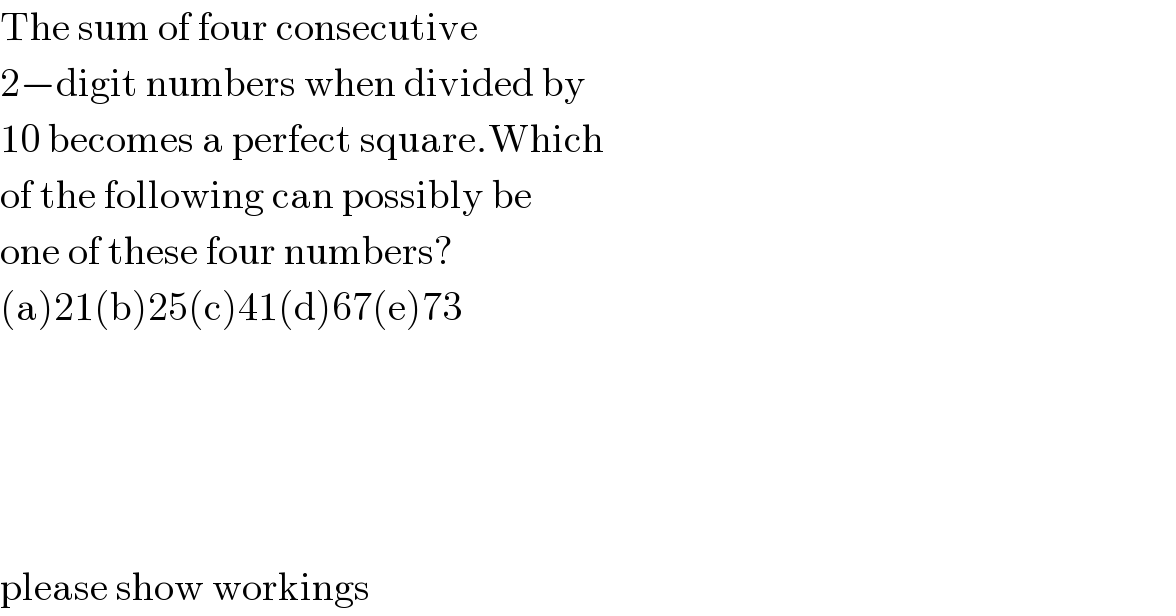
Question and Answers Forum
Question Number 19009 by chux last updated on 03/Aug/17

Answered by ajfour last updated on 03/Aug/17

Commented by chux last updated on 03/Aug/17

Commented by ajfour last updated on 03/Aug/17

Commented by chux last updated on 03/Aug/17

Commented by chernoaguero@gmail.com last updated on 03/Aug/17

